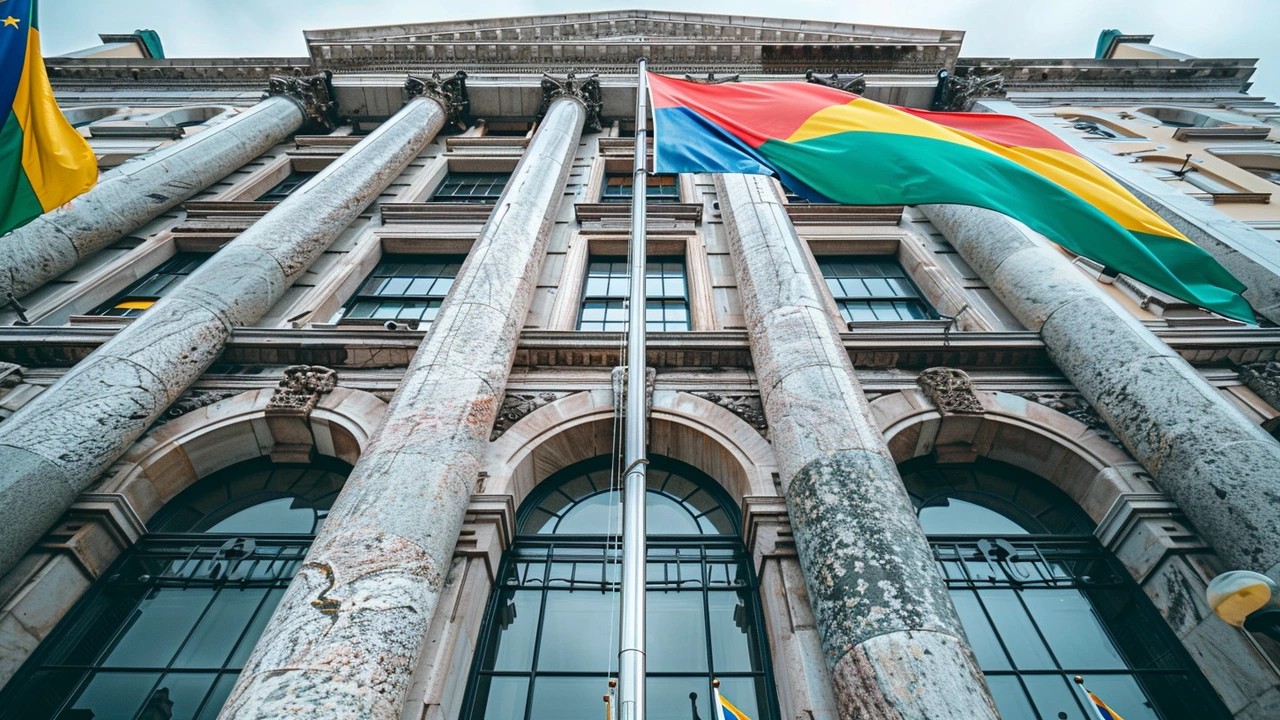Ireland's Bold Recognition of Palestinian State Sparks Diplomatic Furor and Mixed Reactions
 May, 29 2024
May, 29 2024
Ireland's Move Towards Palestinian Recognition
In a significant and contentious decision, the Republic of Ireland has officially recognized a Palestinian state. This landmark move, described by Irish Prime Minister Leo Varadkar as both 'important and historic,' has set off a wave of reactions on the global stage. Extending beyond mere political gestures, the implications of this recognition ripple through diplomatic circles, challenging existing alliances and igniting fervent debates on the future of the Israeli-Palestinian conflict.
Prime Minister Varadkar's announcement was met with applause from Palestinian factions such as Hamas and the Palestinian Authority. To them, Ireland's recognition is a welcome acknowledgment of their ongoing struggle and aspirations for statehood. For the Palestinians, this move symbolizes international support that could potentially shift the dynamics of their quest for sovereignty. However, the reaction from Israel was far from welcoming.
Israel's Swift and Stern Response
In a gesture reflecting its profound disagreement, Israel responded to Ireland's decision by recalling its ambassador from Dublin. This dramatic move underscores Israel's deep concerns that recognizing a Palestinian state at this juncture will embolden terrorist activities and foster greater instability in an already volatile region. According to Israeli authorities, this act might be seen as a reward for organizations that they deem as having engaged in terrorism.
The recall was not just a symbolic gesture. Israel, pointing to the recent deadly attacks carried out by Hamas, which resulted in the tragic loss of around 1,200 lives, argued that such recognitions might be indirectly endorsing violent endeavors. This aspect has been a cornerstone of Israel's insistence that any final status negotiations or recognitions only come after concrete and lasting peace agreements are in place.
International Repercussions and Further Diplomatic Actions
Ireland's recognition of Palestine did not occur in isolation. Norway and Spain have similarly announced their intentions to recognize a Palestinian state, signaling a potential shift in European policy. This coordinated recognition effort has further strained Israel's diplomatic relations, leading to a series of high-stakes diplomatic exchanges.
The Israeli Foreign Affairs Ministry's summoning of the Irish, Spanish, and Norwegian ambassadors highlights the seriousness with which Israel regards these recognitions. These summits are intended to convey Israel's displeasure and to urge these countries to reconsider their stance, emphasizing the potential security risks and broader geopolitical consequences.
Mixed Reactions Within Ireland and Among the Palestinian Diaspora
The decision has stirred a broad spectrum of reactions from Palestinian students and residents in Ireland, revealing a complex web of emotions and concerns. While some view the recognition as a necessary and commendable step towards justice and acknowledgment of their heritage, others are apprehensive about its tangible benefits. The practical implications for Palestinian students, such as visa issues and potential political ramifications, have also surfaced as pressing concerns.
On another front, organizations such as the Ireland Israel Alliance and notable figures like former Irish justice minister Alan Shatter have voiced strong criticism. They argue that this recognition rewards what they see as Palestinian terrorism and raises concerns about the rise of anti-Semitism within Ireland. This narrative suggests that the decision might be more symbolically divisive than unifying.
Future Prospects and Diplomatic Developments
In the coming months, significant developments are expected on the diplomatic stage. A Palestinian embassy is slated to open in Dublin, marking a physical and symbolic presence of Palestinian statehood in Ireland. Concurrently, Ireland plans to send an ambassador to represent Irish interests and solidarity with the Palestinian people, reinforcing bilateral ties.
As this situation unfolds, it highlights the delicate balance of international relations and the intricate web of local and global politics. The actions taken by Ireland, Spain, and Norway reflect a growing trend among certain international actors to acknowledge Palestinian statehood independently of a broader peace agreement. Whether this will lead to constructive change or further geopolitical fragmentation remains to be seen.
In conclusion, Ireland's bold recognition of a Palestinian state has opened new diplomatic fronts, elicited varied reactions, and underscored the enduring complexities of the Israeli-Palestinian conflict. As the world watches, the true impact of this decision will unfold in the arena of international diplomacy and regional stability. Amidst the acclaim and controversy, one thing is clear: this historic move has already changed the narrative and could potentially reshape the future political landscape.